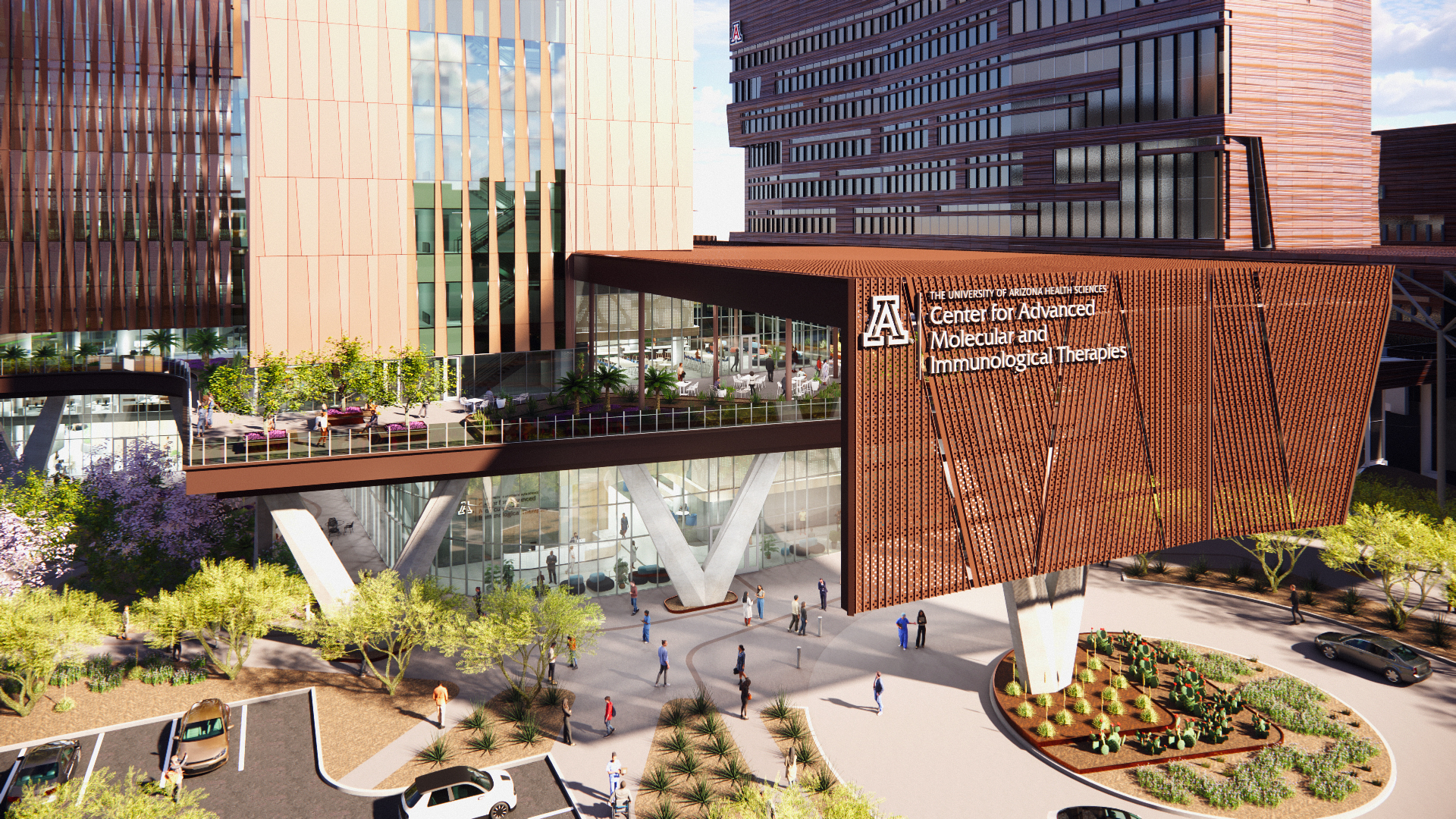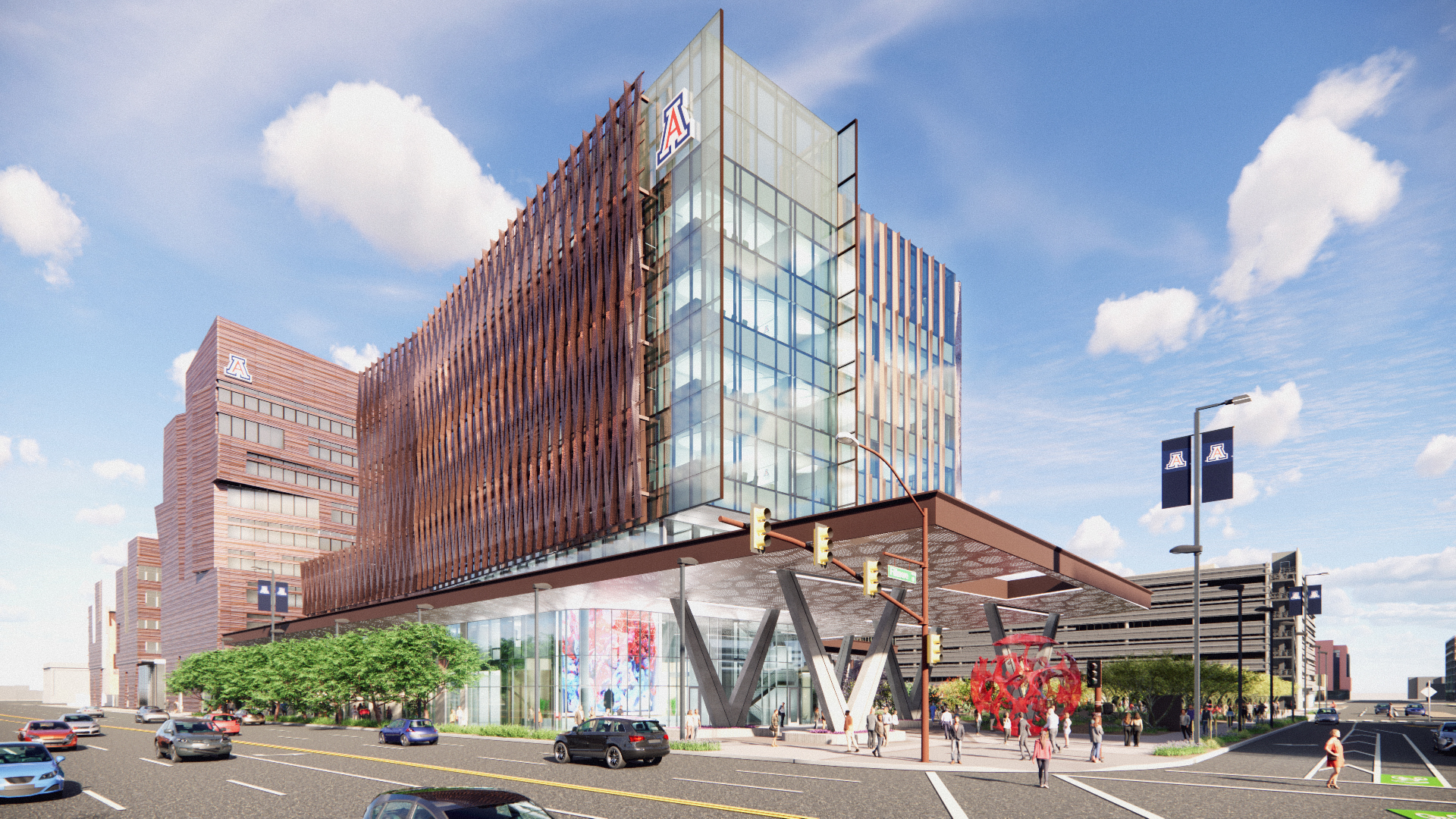The University of Arizona Health Sciences Center for Advanced Molecular and Immunological Therapies will receive more than $20 million in funding from the Phoenix City Council following a unanimous vote of support June 26.
The Center for Advanced Molecular and Immunological Therapies, or CAMI, is a biomedical research hub being developed on the Phoenix Bioscience Core in downtown Phoenix. Groundbreaking for the seven-story, 200,000-square-foot building is expected to take place this fall at the southwest corner of Seventh and Fillmore streets.
The $20 million is composed of various forms of support that will be invested by the city over time, including $16.5 million in payments from the city’s Downtown Community Reinvestment Fund and abatement of ground lease rent for the term of the project.
“There is a culture of entrepreneurship in Arizona, especially in Phoenix,” said University of Arizona President Robert C. Robbins, MD. “CAMI represents a convergence of talents, not only at the University of Arizona, but also including the great partners we have at ASU, NAU and TGen. I am so appreciative to the Phoenix City Council for supporting our vision for CAMI, for the Phoenix Bioscience Core and for the state.”
The June 26 vote followed a June 12 unanimous vote by the city’s four-member Council Economic Development and Housing Subcommittee that support for CAMI be forwarded to the full Council for consideration.
“Phoenix is among the top five of the nation’s emerging life sciences markets and number one for job growth in the life sciences in emerging markets,” said Phoenix Mayor Kate Gallego. “We are confident the Center for Advanced Molecular and Immunological Therapies will further enhance our status as a significant force in the national bioscience industry while contributing to vital growth in our local and state economies.”
Mayor Gallego is a member of the CAMI Advisory Council, a group of more than 20 distinguished leaders from academic research, biomedical and health care industries, government, and private corporations across the state. Their guidance will ensure the work being done through CAMI translates to real-world outcomes to improve the health of Arizonans and advance precision medicine solutions to pressing health issues including cancers, infectious diseases and autoimmune conditions.
“Mayor Gallego and the Phoenix City Council have a strong history of championing the advancement of health sciences in Phoenix,” said Michael D. Dake, MD, senior vice president for the University of Arizona Health Sciences. “This financial investment speaks to the value CAMI will bring to Arizona through innovative and translational research, startup activity, and corporate engagement.”
Led by inaugural Executive Director Deepta Bhattacharya, PhD, CAMI is expected to generate a return on investment of 2.5-to-1 in its first 10 years. An economic impact report anticipates economic activity in Arizona will increase by at least $3.9 billion thanks to CAMI, which will generate at least $140 million in new local tax revenue for Phoenix and Maricopa County.
“CAMI will be an exciting addition to the downtown area,” said Councilwoman Kesha Hodge Washington, who represents Council District 8 in which CAMI will reside. “The Phoenix Bioscience Core is part of our community, and CAMI aligns with our larger vision for growth by combining health sciences academics and research with community engagement and workforce development. It demonstrates the synergy that is created when industry and community partner to elevate Phoenix and make life better for our residents.”
CAMI builds on the idea that the most effective defense against disease is the body’s immune system. The goal is to translate advanced immunotherapies research into novel strategies for the diagnosis, prevention and treatment of diseases.
CAMI was started with New Economy Initiative funding provided to the University of Arizona by the Legislature and allocated to UArizona Health Sciences. It has received strong government and philanthropic support, including $150 million in state funding and $4 million in county funding.


